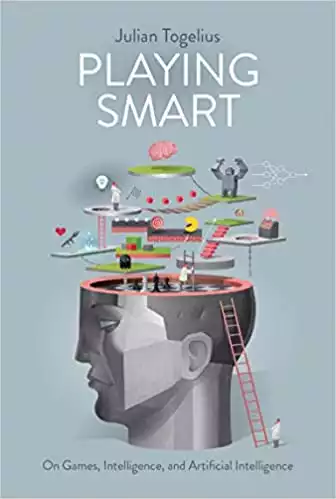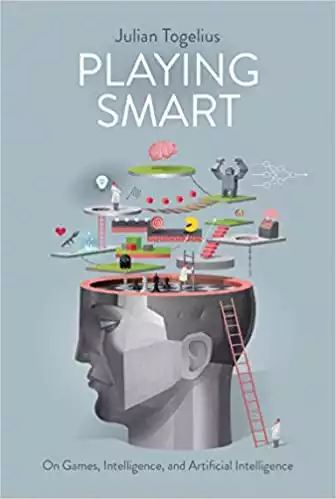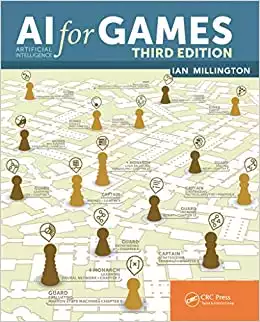Introduction: How Video Games Use AI
How video games use AI is an example of how AI is used to keep the players engaged and leads to numerous outcomes instead of limited ones. Over the last few years, artificial intelligence has gained even more recognition and has been infused into the many technologies we now use daily.
We live in a world where the absence of technology gives us a difficult time. Whether we use it for work purposes, academic purposes, or even entertainment, our lives come to a near-standstill when our tech goes offline. Even the entertainment industry is heavily reliant on technology. One of the world’s favorite forms of entertainment —gaming — is totally dependent on technology. More specifically, its uses of Artificial Intelligence.
Artificial intelligence has long been used in the gaming scene and the gaming industry has benefitted greatly. Through AI, not only have new features been made available to make the games more exciting, but it also makes games more user-friendly.
But first, let’s go back to the basics. What is AI or artificial intelligence? What is AI in the context of gaming?
Also Read: Our Favorite AI from Video Games.
AI and Gaming: How Are They Connected?
AI involves the use of smart machines, or bots in this case, which are capable of learning to perform the tasks usually carried out by humans. AI in gaming paves the way for responsive, adaptive, and intelligent behaviors to be executed – usually by non-player characters. These characters creatively act as if they are being controlled by a human player. In short, AI is an engine that dictates how non-player characters act. It prompts characters to perform distinct movement patterns depending on the events of the game and on the player’s input. AI uses data mining and procedural content generation to extract and discover patterns and automatically create data for the AI to learn from.
Artificial intelligence has been used by the gaming industry since the 1950s. Since then, it has been an integral part of games’ performance. AI has evolved quickly and is used in almost every video game in the world. Some examples of video games that have made the best use of AI are Red Redemption 2, Rocket League, Minecraft, Grand Theft Auto, and The Last of Us.
Also Read: Self taught AI will be the end of us.
Why Does AI in Gaming Matter?
AI has become an integral part of a game’s performance. AI enhances the user’s experience with the vast array of events that it can make possible, consistently making the gameplay closer to reality. AI creates more interaction possibilities for the players. Users can play with the AI or against the AI, depending on their preference.
Another important reason AI matters in the gaming industry is that before AI, gaming could only be played on two devices, namely, either a console or a desktop. This made everything in the game rather limited. However, AI has introduced us to a new gaming experience that goes beyond consoles and specific devices. One where users can enjoy the game like a real-life experience rather than be limited to the feeling of a console in their hands. Now, users can enjoy high-definition games with their mobile phones, laptops, VR headsets, and more.
Also Read: Top 10 AI books for beginners
Playing against an AI
Playing against an AI differs depending on which game you’re playing. Some gamers only play against AI to practice their skills before competing with other users. Many games offer the option for you to play with a bot. League of Legends, Mobile Legends, DOTA, and Valorant are just a few examples of games where you can play against bots. It’s ideal to explore the game by playing against bots before pitting your skills against actual players all over the world.
In the past, the design used in AI was the Finite State Machine design where every possible experience was thought of and accounted for. This made gaming unsatisfying once one completed the game as it was repetitive. However, more recent AI technology has been built to keep learning in a way similar to humans. This has brought back the excitement of gaming as there are always new tricks, new techniques, and new decisions made by the AI as you game with it. The developer Monolith created the Nemesis AI system, which allows enemies to remember their fights against the player, resulting in long-term feuds that can flare up later on in the game.
League of Legends and Mobile Legends are two games that are good case studies for what it’s like to play against an AI opponent:
Playing against an AI in League of Legends
League of Legends has been an exceedingly popular game since its launch in 2009. If you’re just a beginner in playing League of Legends, playing against bots can be an effective way to practice.
To play against bots, players can select the AI category, then choose a mode and a difficulty level. The difficulty level determines how challenging the bots will be in terms of their skills. AI mode allows for practice killing minions which gives the player experience. When players kill these enemies, they gain gold which can be used to purchase items and can be an advantage to the gamer.
Playing against an AI in Mobile Legends
Mobile Legends is like League of Legends in terms of how it’s played and the whole concept of the game. League of Legends is played on the desktop while Mobile Legends can be played via mobile phone. Simply press the “VS AI” match option to play an AI. For the game modes, you can choose between Classic, Brawl, and Draft Pick. The difficulty settings involve AI: Simple and AI: Normal. AI: Normal has more advanced opponents whereas AI: Simple offers easier opponents, making it perfect for beginners.
Bottom Line: How Video Games Use AI
Artificial Intelligence has taken the gaming experience of users to the next level and has opened our minds to the many possibilities we might not have considered before now. As developers continue to understand the increased computing power of newer PCs and consoles, AI systems will become more complex. Language processing and player design will be explored in more depth, and AI characters will become more realistic, reactive, and diverse as a result. As AI advances, so do our games and player experiences.













